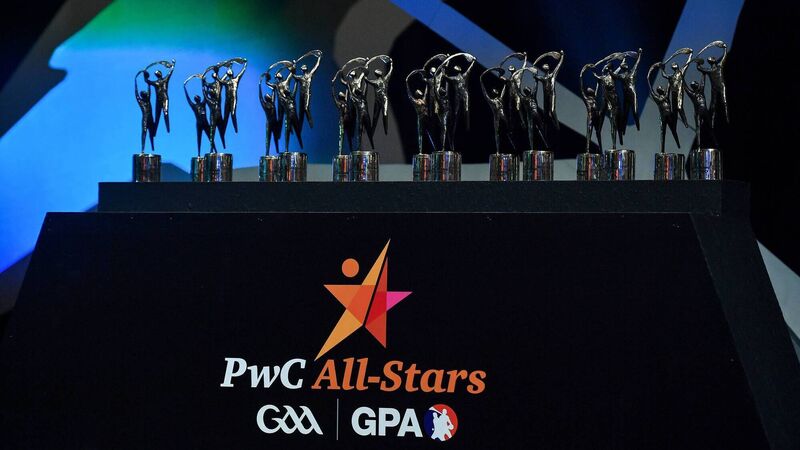John Fogarty: Ten things you didn't know about GAA's All-Stars selection

The PwC GAA GPA All Star awards at the Convention Centre in Dublin. Photo by Brendan Moran/Sportsfile
Try from €1.50 / week
SUBSCRIBE
The PwC GAA GPA All Star awards at the Convention Centre in Dublin. Photo by Brendan Moran/Sportsfile
The PwC All-Stars nominations will be revealed later this week. In the 50th year of the scheme, GAA correspondents and journalists will gather in Croke Park to shortlist the 45 in each code as well as the three best senior and young players of the year. They will reconvene in December to cut those lists by a third into teams.
The selection process is kept under wraps but here are 10 things that can be revealed:
Already a subscriber? Sign in
You have reached your article limit.
Annual €130 €80
Best value
Monthly €12€6 / month
Introductory offers for new customers. Annual billed once for first year. Renews at €130. Monthly initial discount (first 3 months) billed monthly, then €12 a month. Ts&Cs apply.
Newsletter
Latest news from the world of sport, along with the best in opinion from our outstanding team of sports writers. and reporters
Newsletter
Latest news from the world of sport, along with the best in opinion from our outstanding team of sports writers. and reporters
Thursday, February 12, 2026 - 7:00 AM
Thursday, February 12, 2026 - 7:00 AM
Thursday, February 12, 2026 - 6:00 AM
© Examiner Echo Group Limited